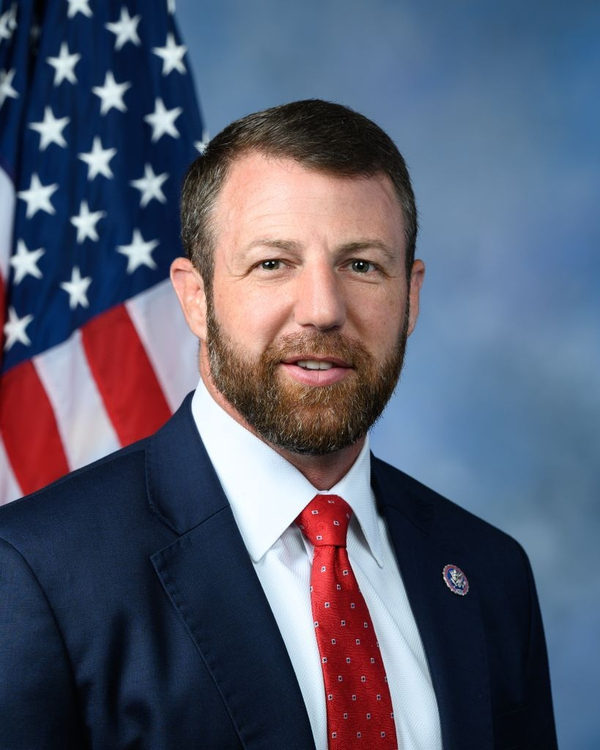For the first time since Sen. Ben Nighthorse Campbell (R-CO), a tribal citizen of the Northern Cheyenne Tribe, sat on the U.S. Senate Committee on Indian Affairs in 2005, a Native American will serve on the Senate Indian Affairs Committee.

Sen. Markwayne Mullin (R-OK) was appointed to the Committee on Wednesday, Feb. 1
The Committee on Indian Affairs provides oversight for policies and issues impacting the lives of Native Americans in the United States, such as Senate bills on water rights, education, health, and environmental issues must be passed out of the Committee prior to going to the full Senate floor for a vote.
A statement from Mullin’s Senate office on Wednesday says the senator will use his position on the Senate Indian Affairs Committee to study matters related to American Indians, Native Hawaiians, and the Alaska Native peoples.
“The Indian Affairs Committee plays a vital role in ensuring that the federal government upholds its trust and treaty responsibilities to Tribal nations,” Mullin said in a statement. “I look forward to strengthening tribal sovereignty, pursuing self-determination policies, and fostering economic growth in Indian Country. Let’s get to work.”
Mullin was elected senator in the midterm elections last November. He was sworn in last month to serve a six-year term. Before becoming a senator, Mullin served in the House of Representatives from 2013, representing Oklahoma’s 2nd congressional district.
In addition to his appointment to the Committee on Indian Affairs, Mullin will serve on three other Senate committees: Armed Services; Environment and Public Works; and Health, Education, Labor, and Pensions.
More Stories Like This
Native News Weekly (August 25, 2024): D.C. BriefsUS Presidents in Their Own Words Concerning American Indians
Indigenous Actor Elaine Miles Reports Detention by Alleged ICE Agents
Happy Thanksgiving from Native News Online
Coming Up on Native Bidaské: Behind the Animation: Joey Clift Talks “Pow” and Native Storytelling
Help us tell the stories that could save Native languages and food traditions
At a critical moment for Indian Country, Native News Online is embarking on our most ambitious reporting project yet: "Cultivating Culture," a three-year investigation into two forces shaping Native community survival—food sovereignty and language revitalization.
The devastating impact of COVID-19 accelerated the loss of Native elders and with them, irreplaceable cultural knowledge. Yet across tribal communities, innovative leaders are fighting back, reclaiming traditional food systems and breathing new life into Native languages. These aren't just cultural preservation efforts—they're powerful pathways to community health, healing, and resilience.
Our dedicated reporting team will spend three years documenting these stories through on-the-ground reporting in 18 tribal communities, producing over 200 in-depth stories, 18 podcast episodes, and multimedia content that amplifies Indigenous voices. We'll show policymakers, funders, and allies how cultural restoration directly impacts physical and mental wellness while celebrating successful models of sovereignty and self-determination.
This isn't corporate media parachuting into Indian Country for a quick story. This is sustained, relationship-based journalism by Native reporters who understand these communities. It's "Warrior Journalism"—fearless reporting that serves the 5.5 million readers who depend on us for news that mainstream media often ignores.
We need your help right now. While we've secured partial funding, we're still $450,000 short of our three-year budget. Our immediate goal is $25,000 this month to keep this critical work moving forward—funding reporter salaries, travel to remote communities, photography, and the deep reporting these stories deserve.
Every dollar directly supports Indigenous journalists telling Indigenous stories. Whether it's $5 or $50, your contribution ensures these vital narratives of resilience, innovation, and hope don't disappear into silence.
 The stakes couldn't be higher. Native languages are being lost at an alarming rate. Food insecurity plagues many tribal communities. But solutions are emerging, and these stories need to be told.
The stakes couldn't be higher. Native languages are being lost at an alarming rate. Food insecurity plagues many tribal communities. But solutions are emerging, and these stories need to be told.
Support independent Native journalism. Fund the stories that matter.
Levi Rickert (Potawatomi), Editor & Publisher

